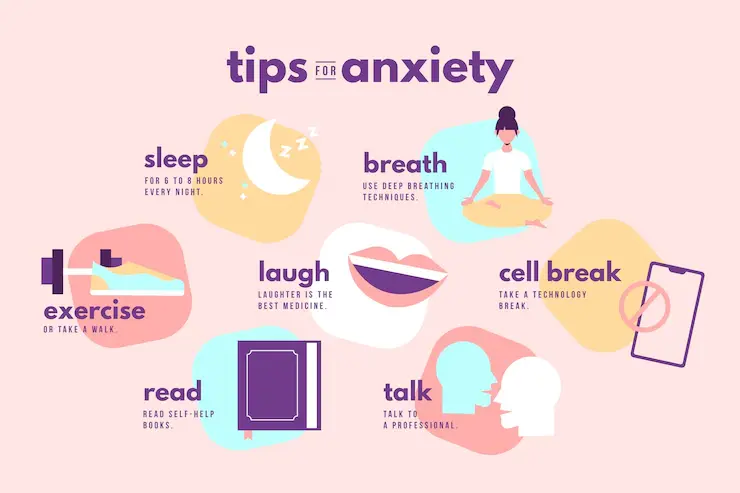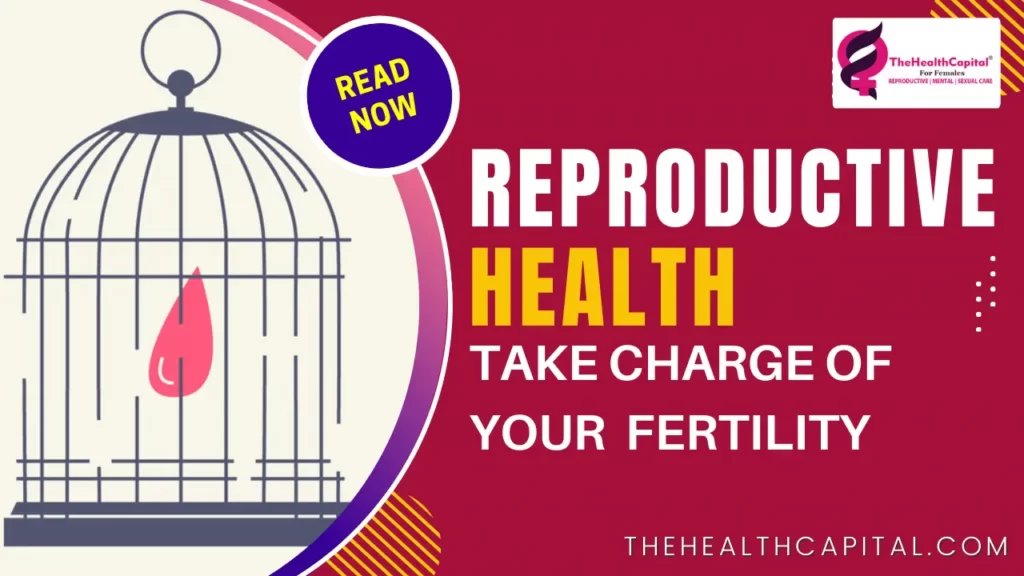Female reproductive health encompasses all aspects of total physical, mental, and social well-being and does not just refer to the absence of sickness or infirmity in areas pertaining to the reproductive system and its activities and processes. A person’s ability to have a fulfilling and safe sexual life, their capacity to reproduce, and their freedom to choose if, when, and how often to do so are all indicators of their reproductive health.
The female reproductive system is one of the body’s most delicate and intricate systems. It is essential to take precautions to shield it against infections, injury, and issues, including certain long-term reproductive health complications. You and your loved ones can be protected by taking care of yourself and making healthy decisions. Maintaining control over your health, if and when you get pregnant, is also important in protecting your reproductive system.
Women’s Reproductive Health
Ovaries, uterus, fallopian tubes, vagina, vulva, mammary glands, and breasts make up the female reproductive system. Each of these organs is crucial to the development and movement of gametes as well as the generation of sex hormones. Fertility, menstruation, contraception, sexually transmitted infections, menopause, and chronic health conditions like PCOS or PCOD are just a few of the life stages that are connected to sexual lives and reproductive health issues.
Women’s reproductive health systems require care, which includes frequent exams and attention to one’s health. Early diagnosis, treatment, and prevention can change conditions and aid in quick healing and recovery. Uterine fibroids, HIV/AIDS, Polycystic Ovary Syndrome, STDs, gynecologic cancer, and endometriosis are only a few of the issues related to female reproductive health.

Reproductive health problems in India are also a very major problem that should be talked about and help women be aware of all the reproductive health problems and strategies to tackle them.
Components of Women’s Reproductive Health
- Family Planning – Family planning is the ability of individuals and couples to anticipate and obtain their desired number of children, with proper spacing and timing between their births. This can be achieved through the use of contraceptives and the treatment of infertility. One of the main components of family planning is fertility and pregnancy. Today, becoming successfully pregnant between the ages of 25 and 34 is a serious concern.
- Sexual Health – Not only is using contraception essential for avoiding unintended pregnancies, but it also guards against sexually transmitted infections (STIs) or sexually transmitted diseases (STDs). These are the main threats to both men’s and women’s reproductive health. Gonorrhoea and Chlamydia can be prevented and treated, however, HIV is much more difficult to treat.
- Maternal Health – This refers to taking care of a woman’s health during pregnancy, as well as in the prenatal and postnatal stages. Women should have access to medical facilities and treatment if needed in case of emergencies.
How to Avoid Reproductive Health Issues?
- Have a balanced diet with healthy food rich in fibre and low in fat
- Drink at least 8-10 glasses of water a day to stay well hydrated and flush out toxins from your body
- Exercising regularly will help reproductive cells function properly
- Ensure your BMI is normal and maintain a healthy weight, to avoid putting stress on your reproductive organs
- Make sure you get a minimum of 8 hours of sleep a day, as having a healthy body and mind contributes to the overall well-being of your reproductive system
- It is crucial to stay away from alcohol, tobacco and drugs
- Healthily manage your stress through deep breathing exercises, relaxation techniques etc.
- Consult your doctor regularly if you are facing any reproductive health problems, so that it is diagnosed correctly and on time

Reproductive Timeline of Women
Women’s reproductive cycles are complicated. All the eggs a woman will ever have are present when she is born. However, only 400–500 of a woman’s oocytes are truly ovulated. Women may lose their fertility even before menopause. Although menopause typically occurs at age 51, most women start having trouble getting pregnant in their mid-40s. These percentages apply to both naturally occurring and artificially produced conception, including in vitro fertilization (IVF).
A woman’s menstrual cycle shortens, infertility rises, and menstrual irregularity starts 6-7 years before menopause as the quantity of oocytes declines. A woman’s time to pregnancy lengthens as she gets older. A woman’s odds of getting pregnant might range from 71 percent when she’s under 30 to only 41 percent when she’s over 36. The likelihood of getting pregnant and the ability to sustain a pregnancy are also impacted by age.
Evaluation of Infertility in Women
If a woman has not become pregnant after one year of unprotected sex (i.e., without the use of contraceptive measures), infertility is typically diagnosed. On the other hand, if she is 35 years or older, the evaluation should start after six months of attempting to get pregnant without any result. Women’s reproductive health problems should be addressed right away. Infertility assessment should be done immediately, if a couple has a clear medical issue that is interfering with their ability to conceive, such as menstrual irregularities (amenorrhea), sexual dysfunction, a history of pelvic disease, or past surgery. Ovulation detection and examination of the uterus, cervix, and fallopian tubes are examples of fertility tests.
Causes of Infertility in Women
- Ovulation abnormalities have an impact on the release of eggs from the ovaries. These include hormonal problems such as polycystic ovary syndrome, hyperprolactinemia and thyroid issues (hyperthyroidism or hypothyroidism).
- Abnormalities of the uterus or the cervical region, such as fibroids or polyps.
- Damage to or occlusion of the fallopian tube, which is frequently brought on by the pelvic inflammatory illness.
- Endometriosis is a painful disorder which occurs when the tissue that normally lines the lining of the uterus begins to protrude outside the uterus.
- Early menopause, also known as primary ovarian insufficiency occurs when the ovaries stop functioning and menstruation stops before the age of 40.
- Pelvic adhesions are another cause of infertility. They are bands of scar tissue that bind organs together following surgery for the abdomen or pelvis, appendicitis, or pelvic infection.
- Medical disorders include poorly managed diabetes, celiac disease, and several autoimmune diseases like lupus are linked to the absence of menstruation.
Treatment for Female Infertility Problems
There are several treatments available to address women’s reproductive health problems:
- Laparoscopy – Surgery to restore your reproductive organs is a possibility if you have been diagnosed with the tubal or pelvic disease. To remove scar tissue, treat endometriosis, unclog blocked tubes, or remove ovarian cysts—fluid-filled sacs that can develop in the ovaries—your doctor inserts a laparoscope through a cut near your belly button.
- Hysteroscopy – During this operation, the doctor will insert a hysteroscope into your uterus through your cervix. It is used to cut scar tissue, unclog blocked channels, and remove polyps and fibroid tumours.
- Medication – The Health Capital provides effective and safe homeopathic treatment for infertility in females, without the side effects of antibiotics. With 14 years of experience in treating reproductive problems in females, we have the solution to all your health problems.
- In vitro fertilization (IVF) – Using this method, your doctor inserts fertilized dish-based embryos into your uterus. Gonadotropins that you take cause the production of several eggs. Your doctor collects the mature eggs with a needle under the guidance of an ultrasound. The eggs in the dish are then supplemented with collected, cleaned sperm. Embryos, or fertilized eggs, are then inserted into your uterus a few days later using a tool called an intrauterine insemination catheter.
- Intrauterine insemination – When you are ovulating, a doctor will inject sperm into your uterus after rinsing it with a specific solution. It is occasionally carried out while you are taking medications that encourage the release of an egg.
- Egg Donation – Your treatment options are limited if you are older, especially if you are over 42, have tried various medicines without success, or if you have premature ovarian failure (POF), commonly known as early menopause. Utilizing another woman’s eggs, often in her 20s or early 30s, for egg donation is a very successful procedure. It entails taking eggs from a donor’s ovary who has taken fertility medication. Your doctor then inserts the fertilized eggs into your uterus after in vitro fertilization.
What to keep in mind
Age when starting a family, nutrition, weight control, exercise, psychological stress, cigarette smoking, use of illicit and prescription drugs, consumption of alcohol and caffeine, environmental and occupational exposures, preventative care, and other behaviours are all lifestyle factors that need to be kept in mind as they may have an impact on fertility.
Taking care of a current reproductive health problem could lead to future fertility that is more favourable. Utilizing contraception and seeing your doctor are two preventative measures that may boost fertility. Making appointments with a doctor for preventative care and when issues emerge may help both men and women become more fertile.
As women age, their fertility naturally decreases. But in women, both the starting point and the pace of decline vary greatly, always starting well before menopause. Fertility typically starts to decline in your late 20s or early 30s, and it declines more quickly beyond the age of 35. If a woman decides to wait until she is at least 35 years old to get pregnant, she should learn about proper screening and medical care while being realistic about her odds of experiencing a successful infertility treatment. A woman and her partner will be more equipped to choose the right course of action if they are informed about all of their alternatives and are aware of their wants and objectives.
Consult The Health Capital for anything related to women’s reproductive health. You can also take a free reproductive health analysis on our website. If you’re considering getting pregnant and worried about how your lifestyle choices may affect your fertility, book an appointment with us. Our doctors can assist you in determining how to increase your fertility and raise your likelihood of becoming pregnant while providing solutions to your reproductive health problems.
FAQ’s
1. Does being infertile mean you can’t have children?
Being sterile and infertile are two separate things. If a couple experiences well-timed, unprotected sexual activity over a year without success, it is considered infertility—or, more precisely, subfertility. It does not imply that you won’t ever become pregnant. A complete medical examination that reveals the patient has no uterus, no ovaries, no egg production, or no sperm production leads to the diagnosis of sterility.
2. How common is infertility?
Infertility is a prevalent illness. One form of infertility affects at least 10% of women. As a woman gets older, her odds of becoming infertile rise.
3. Is there a cure for Polycystic Ovarian Disease or Polycystic Ovary Syndrome?
The Health Capital provides homeopathic treatment for PCOD and PCOS as well as all other female reproductive health problems. It has proven itself to be the best treatment for PCOD/ PCOS. It has no side effects as well and also gives a permanent solution for these conditions.
4. Can you prevent women’s reproductive health problems?
The majority of female reproductive health problems cannot be anticipated or avoided. In some circumstances, it is possible to avoid infertility by reducing the risk factors that may contribute to it like reducing alcohol intake and stopping smoking, as well as maintaining a healthy weight and forming good exercise habits, which may help one’s fertility.
5. What are the symptoms of infertility?
No periods or painful periods, increase in acne or other skin changes, changes in sexual desires, dark hair growth on the chest, lips and chin, thinning or loss of hair, irregular weight gain, hot flashes, painful intercourse or the inability to have sex and milky breast discharge are all symptoms of infertility in females.
6. What are the 3 ways to protect your reproductive health?
1 Visit your gynecologist on an annual basis.
2 Never use harsh cleaners and scented things in your intimate areas.
3 Practice safer sex.
4 Understand your reproductive health problems and strategies to tackle them.


FIBROIDS IS CURABLE WITHOUT SURGERY! I say so because my daughter once surfer fibroid and she got cured by doctors of The Health Capital without surgery. she’s a mother now, no miscarriage, no pain and no any symptoms or sign of fibroid ever since she got cured. Thank you doctor.